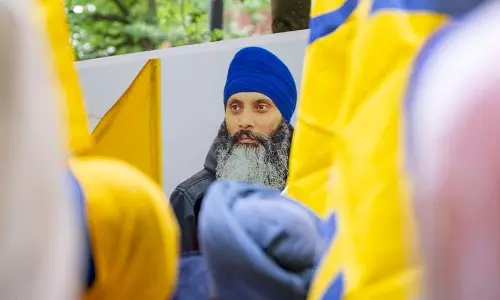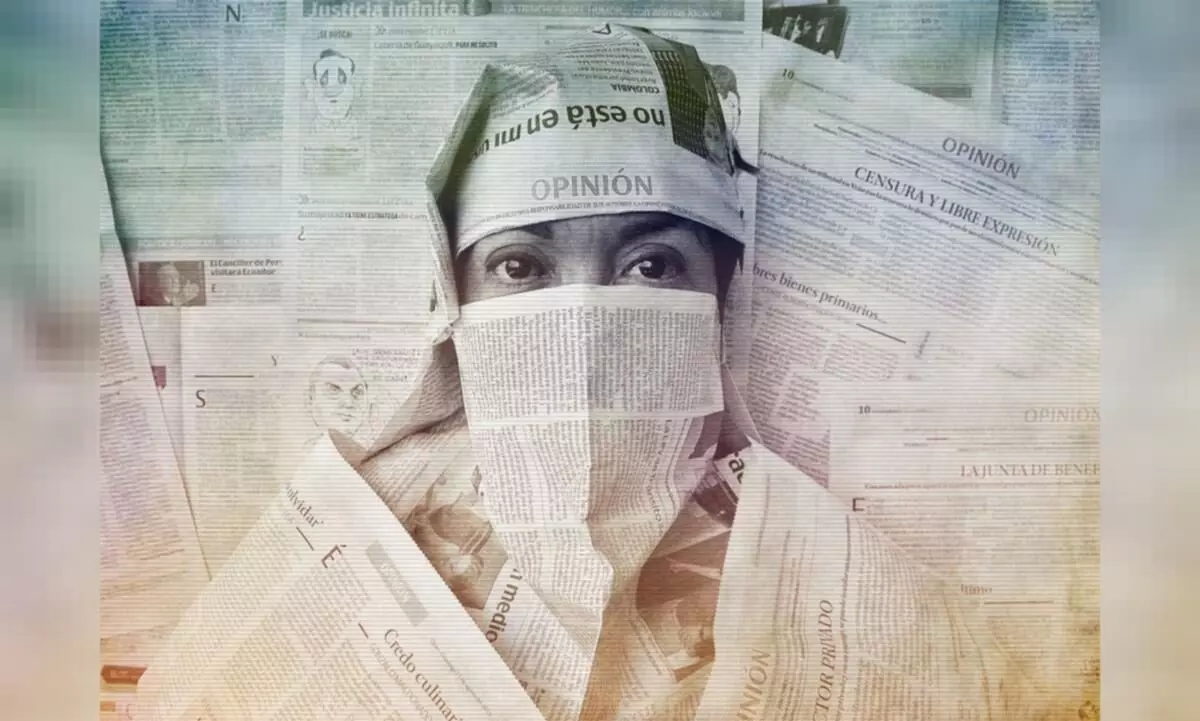
Foreign journalists in India raise concerns over Aussie journalist’s visa denial
text_fieldsNew Delhi: A group of 30 foreign journalists working in India protested against the effective ‘pushing out’ of Australian Broadcasting Corporation's South Asia bureau chief, Avani Dias, who was told she had ‘crossed a line’ for her reporting on the killing of Sikh separatist leader Hardeep Singh Nijjar.
The issue surfaced when Dias was informed that her visa extension would be denied due to her reporting allegedly "crossing a line" according to the Indian government.
This decision came amidst growing tensions between India and Canada over Nijjar's killing, with Canadian Prime Minister Justin Trudeau even suggesting a possible link between Indian intelligence agencies and the assassination.
Despite efforts by Australian authorities to lobby for an extension, Dias' departure seemed imminent until her visa was eventually extended for two months, a day before she left India. She was also informed that her election accreditation, for covering the upcoming Lok Sabha elections, would not be granted due to a directive from the Indian Ministry.
“Foreign journalists in India have grappled with increased restrictions on visas and journalism permits for those holding the status of Overseas Citizens of India,” said the open letter shared on social media by Financial Times’ South Asia bureau chief John Reed. “The circumstances of Ms Dias’ departure are further causes for concern.”
Dias revealed her ordeal in a social media post, stating that she had been living and working in India for the past two-and-a-half years. The journalist recounted a phone call from an official of the Ministry of External Affairs, informing her that her routine visa extension application would not be approved and that she must leave the country before her visa expires.
The official cited Dias' reporting on the Sikh separatist issue, particularly referencing a podcast episode titled "Looking for Modi," as the reason for the visa denial.
Moreover, Indian authorities accused Dias of violating her visa conditions by producing a documentary, despite her and other ABC journalists having previously filed similar pieces without issue. This discrepancy highlighted inconsistencies in the treatment of foreign journalists and raised questions about the freedom of the press in India.
The situation escalated when the Press Information Bureau informed the Australian Broadcasting Corporation that Dias would not receive accreditation to cover the Lok Sabha elections.
The treatment of Dias and the subsequent implications for foreign journalists operating in India have sparked outrage among media circles. In an open letter, foreign correspondents condemned the Indian government's actions, calling for a commitment to upholding press freedom in line with India's democratic traditions.
























